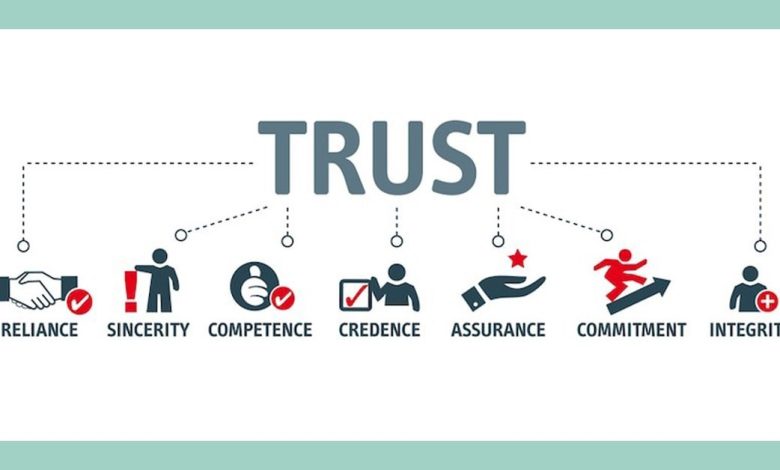Power of Trust Building in Leadership Development Training

In today’s fast-paced and dynamic business world, leadership development is the key to keeping any organization thriving. Businesses continue to grow and change as organizations, and strong leadership is very necessary to guide teams through difficulties and drive innovation toward achieving organizational goals. One of the most critical components of effective leadership is trust building.
Trust is the bedrock of any successful relationship. That’s equally true of leadership. Leadership development training that emphasizes building trust is invaluable in creating loyalists, team players, and positive workplace cultures. The post looks at the importance of building trust in leadership development training; that’s how trust influences effectiveness at the leadership level, as well as how an organization can develop it with appropriate training.
Why Trust Building is Important for Leaders
Trust is a key ingredient for strong, effective leadership. Leaders who inspire trust are more likely to achieve goals, motivate teams, and maintain high morale. A culture of trust improves communication, reduces conflict, and encourages employees to take risks, innovate, and contribute their best work. Without trust, leaders may not be able to get the best out of their teams or even keep employees engaged and satisfied.
Here are some reasons why the process of building trust is of absolute importance in leadership:
- Creates Stronger Relations
Leadership is not just about giving orders; it’s about connecting with people, understanding their needs, and guiding them toward a shared vision. When a leader builds trust with their team, they create stronger, more authentic relationships. Employees are more likely to open up, share ideas, and collaborate when they trust their leader. This, in turn, leads to better teamwork, higher employee morale, and increased job satisfaction.
- Encourages Transparency and Accountability
A person who is a trustworthy leader tends to be truthful in his actions and decisions. Trust-building leaders create an open environment, where their actions are in line with what they say. This opens up an environment where one can easily take responsibility for himself and also hold himself liable. Accountability is very paramount for the success of the entire organization, and trust forms its bedrock.
- Boosts Employee Engagement
When employees believe in their leader, they tend to develop a greater sense of responsibility towards their job. They see that their work is valued; the organization’s goals are aligned with their personal or professional objectives. This ensures that workers put in great effort, raising productivity and fewer turnover rates.
- Fosters Innovation
A trust-based relationship gives leaders the freedom to empower their teams, ask them to be innovative and come up with creative solutions with zero risks. Employees are always willing to give innovative solutions, suggest improvements, and propose new ideas if they feel that their leaders have their backs.
This will develop an environment where employees are not afraid to fail since there is room for experimentation and creative problem-solving.
The Role of Leadership Development Training in Trust Building
Trust does not develop overnight. It develops through consistent action, behavior, and communication over time. This is why leadership development training focused on trust building is critical. By incorporating trust-building exercises, strategies, and principles into leadership training programs, organizations can cultivate leaders who are skilled in developing and maintaining trust with their teams.
Some ways leadership development training can promote trust-building are as follows:
- Teaching Emotional Intelligence
EI refers to the capacity to observe, identify, and regulate one’s own emotions and, subsequently, be able to observe and understand other people’s emotions. Leaders who have emotional intelligence are in a better position to understand their team members, effectively communicate with them, and resolve any emerging conflicts constructively. Such leadership development training helps leaders realize self-awareness and develops the social skills required for building confidence among team members.
For instance, emotionally intelligent leaders will understand when employees are feeling stressed, frustrated, or disengaged. Rather than reacting negatively or dismissively, they will be able to listen, offer support, and show empathy of which help build trust and strengthen relationships.
- Active Listening
Active listening is the best tool for building trust. By showing that they respect employees’ opinions and feedback, actively listening leaders create an environment of respect and understanding. Leadership development training programs can include exercises emphasizing active listening, helping leaders be more present and attentive during conversations with their team members.
They will be able to raise concerns early on and, therefore, address the problems before they grow. Such leadership can provide individualized coaching to team members to elicit increased trust and respect.
- Transparency and Honesty
Trust-building leaders are also transparent about their actions, decisions, and expectations. Open leadership would frequently share challenges, information, and reasons behind his decisions. Leadership training in transparency teaches a leader how to openly communicate with a team to foster a culture of trust.
The honesty and transparency nature of leaders can gain them the respect and trust of the team members. Employees value honesty as well as openness and will not hesitate to acknowledge honest-to-goodness news-whether positive or negative. Transparency does away with ambiguity, keeping everyone in the organization properly aligned toward common goals.
- Consistency and integrity
Leaders must lead by example, and consistency in behavior is a key trait of trust-building. Employees need to be sure that their leaders will always act with integrity and adhere to the ethical standards of the organization. Leadership development training can help leaders understand why it is important to model consistent behavior, ensuring that their actions align with the values and principles of the organization.
Leaders who take their commitments seriously and execute them establish stability and a sense of reliability. Employees can more readily trust a leader whose decisions and actions are consistent, even in difficult times.
- Team Co-ordination Through Collaborative Leadership
Another effective strategy to foster trust in teams is collaborative leadership. When team leaders work with their teams, making decisions collaboratively and empowering their team members to contribute ideas as well, they create ownership and mutual respect. Thus, collaboration-based leadership development training would help leaders develop an understanding of how to build the kind of strong, cohesive teams that trust each other as well as their leader.
By involving team members in decision-making processes and valuing their input, leaders show that they trust their team members. This reciprocal trust strengthens the bond between leaders and their teams, fostering a culture of mutual respect and support.
The Impact of Trust on Organizational Success
Trust is not one of those “nice-to-have” qualities in leadership but an important ingredient for business success. When there is trust at work, teams are more collaborative, productive, and innovative. Employees are more motivated, engaged, and challenged to take on more challenges. Organizations driven by trust experience less turnover and more employee satisfaction.
On the other hand, a lack of trust may lead to disengagement, poor communication, and a toxic workplace culture. Leaders who fail to build trust with their teams will face challenges in achieving organizational goals, motivating employees, and maintaining high morale.
Conclusion
Building trust is at the core of leadership. Leaders who can build trust with their team create a work environment that makes the employees motivated, engaged, and committed to success. The ability to develop such leaders by incorporating trust-building principles in leadership development training helps organizations develop leaders who inspire confidence, promote transparency, and encourage collaboration.
Investing in leadership development training that focuses on trust building is not only an investment in the skills of leadership but also the long-term success of the organization. Trust is the base of strong relationships, effective teams, and ultimately organizational growth. With continuous training, leaders can build the necessary trust and respect to lead their teams to success.




